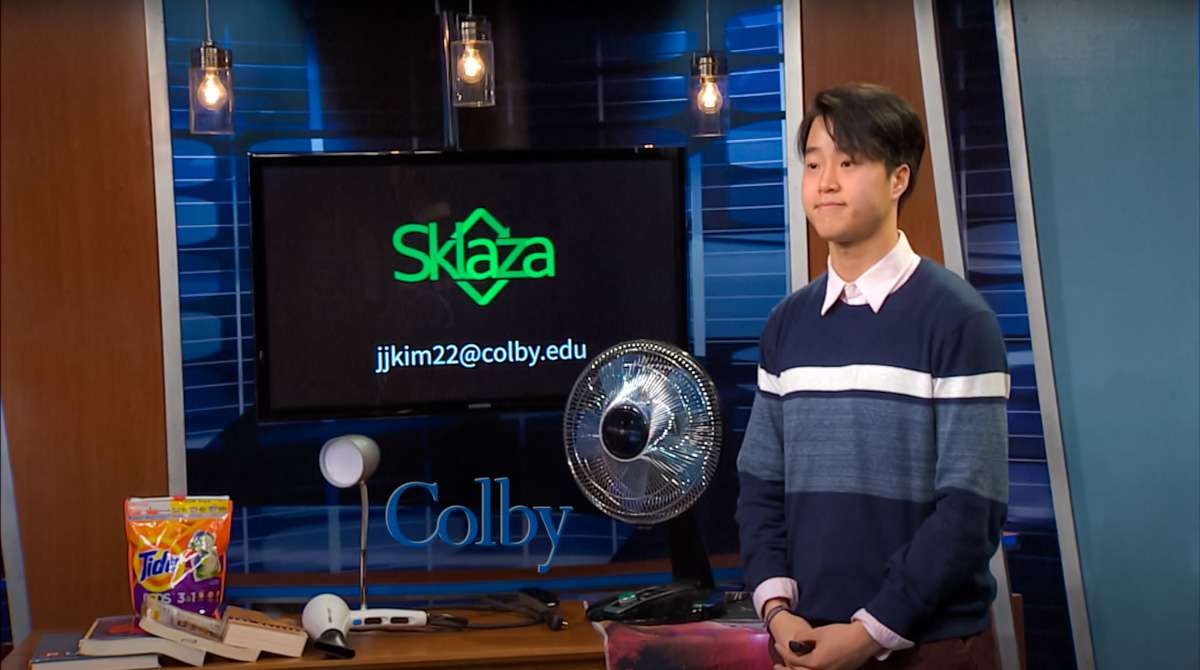
A college entrepreneur has already gotten valuable experience in Maine’s startup community
Josh Kim is CEO and co-founder (with Matteo Cugno) of the Cubby, which won the Top Gun competition and $25,000. The Cubby is an online gallery and marketplace for college artists. Kim, who will be a senior at Colby College in the fall, is no stranger to Maine’s network of funding-and-support institutions, having already received funding from Maine Technology Institute and now Maine Center for Entrepreneurs’ Top Gun competition. The Central Maine Growth Council named him “Emerging business leader of the year.” He has also been a semifinalist in the “Greenlight Maine” collegiate challenge. Mainebiz sat down with Kim to talk about Maine’s funding ecosystem and what it’s like to build a business here. This is an edited transcript.

Mainebiz: I’m sure it was exciting to win $25,000, but was there also a sense of validation that your company is on the right track?
Josh Kim: The validation, while a number like $25,000 is significant, we were psyched. The money is great, but the validation is what lasts, not the money. It’s serious validation … from a serious program like Top Gun. Not necessarily a weight was lifted, but I felt that support at a different level. What’s awesome, there’s been a snowball effect. The “Emerging business leader” award validated me as an entrepreneur, a maker, a first-time business owner.
MB: But the Cubby’s focus shifted from reselling textbooks to students to selling student art, without commissions, to a broader audience.
JK: It was a full 180, plus we were already growing. We launched in five schools, in COVID. We grew from one person to five … The transition to art came last fall. We had underestimated the factor of seasonality. We needed supply. Didn’t take into account demand. Demand was through the roof last fall [at the beginning of the school year]. Our team: ecstatic. Our future: bright. But then October came and no sales. Once students are settled in, no one buys things. There’s also no supply — people have what they need. That’s when our gears started turning. They wanted to sell their own work. We were thinking, that’s a fun idea. We started the “Student Made” campaign. Post your own work. It ended up being the best project/mistake.
MB: Until you built a team — the five principals at the Cubby — it was just you. What was that like?
JK: I was alone, lonely. That aimlessness can slow you down. There’s a community element here. When you look at thecubby.com you see faces, not just products. We’re sharing vulnerable work. Validation is really important. Especially in young stages … they’re there because they’re seeking validation. When you don’t get that, that’s when you make career changes. Even to take it further, it can lead to depression. That’s why Maine has been so good to me. Everything my team sees, we sign up for. We want to provide validation for artists.

MB: The Cubby’s business model is to sell one-of-a-kind pieces of art at affordable prices. The entire purchase price goes back to the artist, with no hidden fees. So how does the site generate revenue?
JK: It’s been on my mind a lot recently. In terms of making money, we are partnering with other businesses. We provide creative work. Or avenues so they can promote their work. We’re talking to other brands about partnering. We’re thinking of hosting a competition. Artists could create work to go into competition. Another example would be artists would do work for companies — we’d get paid for connecting artists with businesses and offering access to the community. It could be fee-based or by subscription. So far we’ve been keeping it custom.
MB: On the Cubby “about us” page you describe yourself as a maker.
JK: Pottery is my true passion. Wheel-thrown pottery. I started very young, taking classes at the Boston Museum of Fine Arts. I loved sculpting. Colby has a good wheel-thrown pottery program. I love it. It’s one of my decompressors.









0 Comments